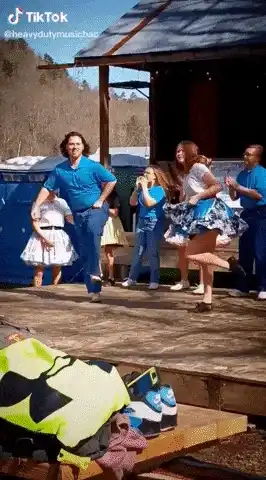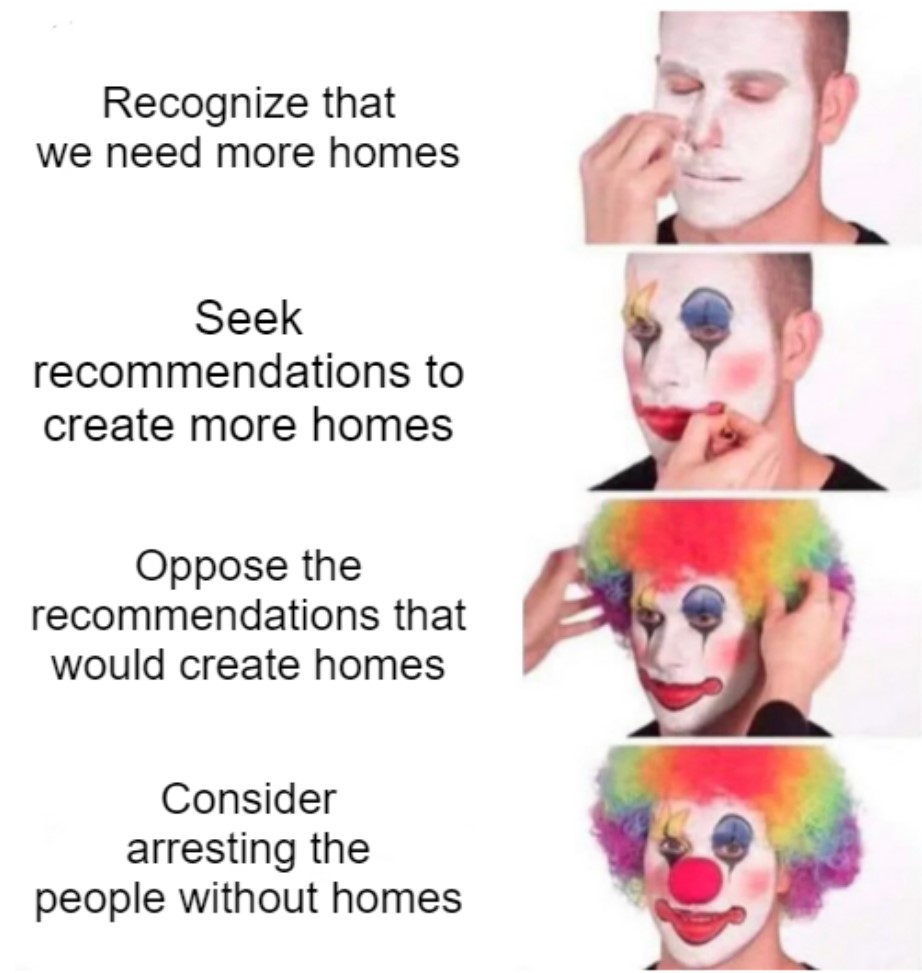As the city had a computer issue last week, there was no new agenda for this week’s meeting. Rather, the Council used this week’s time to clean up a small handful of items that they did not reach last week. Clocking in at about an hour and a half, this was a relatively quick meeting, focused largely on the Accessory Dwelling Unit “ADU” issue.
Please don’t come in here with your ADU bullshit, again.
Me, coming in here with my ADU bullshit, again:

Look, I work with what the Council gives me, and ADUs are “hot” right now. Moreover, I’m invested in this debate as I view ADUs as test of this council’s will to address housing via zoning. In other words, if they lack the will to implement even modest zoning changes, I won’t hold my breath for anything more ambitious.
1. ADUs Still in the Spotlight – But Not on the Ballot
Councilor Mercier provided a report on the April 19th Neighborhoods Subcommittee meeting on ADUs. This was followed by consideration of the following motion by Councilor Gitschier:
Req. City Mgr. Have The Law Department Prepare A Vote To Place An Non-Binding Referendum Ballot Question Regarding Zoning For Accessory Dwelling Units (ADU) For Upcoming Election.
The motion failed 8-3 with Councilors Gitschier, Mercier and Robinson as the only supporters. The discussion that preceded the vote confirmed that will be no consensus by the Council on passage of an ADU ordinance. Despite acknowledgement by most everyone that we have a shortage of homes and that the homeless population is mysteriously growing year-after-year, there will remain vocal opposition.
So how did we end up here? Why it so hard to make even minimal changes to zoning laws that would legalize more housing? It’s not just a Lowell problem, it’s an everywhere problem. Last year, there was an article in The Atlantic by Jerusalem Demsas titled “Community Input Is Bad, Actually.” The author posits that overreliance participatory democracy is part of the problem:
Development projects in the United States are subject to a process I like to call “whoever yells the loudest and longest wins.” Some refer to this as participatory democracy.
Across the country, angry residents and neighborhood associations have the power to delay, reshape, and even halt entirely the construction of vital infrastructure. To put a fine point on it: Deference to community input is a big part of why the U.S. is suffering from a nearly 3.8-million-home shortage and has failed to build sufficient mass transit, and why renewable energy is lacking in even the most progressive states.
[P]roviding input shouldn’t just happen at the ballot box, or so the thinking goes. But the process is fundamentally flawed: It’s biased toward the status quo and privileges a small group of residents who for reasons that range from the sympathetic to the selfish don’t want to allow projects that are broadly useful.
“Democracy is bad” is a scorching hot-take…one that I’m not sure I’d want to be caught agreeing with. However, I found myself thinking about this article again and again while watching the ADU debate unfold over the past year. Specifically, I can’t help but note where the “loud and long” yelling is coming from in Lowell.
The city has had three (3) subcommittee meetings on ADUs this year. The Housing/Zoning Subcommittee had meetings on March 21st and April 4th. The Neighborhoods Subcommittee had a meeting on April 19th. In addition, there was a 4th meeting held by the Zoning Subcommittee back in June of 2022.
LINKS TO THE MEETINGS:
At each of these meetings, members of the public had an opportunity to speak. Based on the addresses provided by the speakers, the vast majority speakers in opposition were from Pawtucketville. Further, it seems most were concentrated in the subsection of Pawtucketville between Varnum Avenue and Pawtucket Boulevard. (For additional context, you may recall that in January, a House of Hope proposal at to add eight “desperately needed” units at 35 Varnum Avenue was shut down in the face of fierce opposition from the neighborhood.). Further, a few of the speakers were “repeat customers,” speaking at more than one meeting.
Jerry Frechette, a member of our Planning Board (who also cast one of two votes against the House of Hope project), spoke in opposition at all of the above meetings and rose to speak in opposition not once, not twice, but three times at the Neighborhood Subcommittee meeting on April 19th. Mr. Frechette spoke again last night.
To be clear, there’s nothing wrong with speaking at a public meeting. These speakers are good citizens. I would bet their voting record is immaculate. However, when one neighborhood group filibusters again and again on any given issue, it can create a skewered vision of the scope of the opposition. Again, (and I can’t stress this enough) these speakers should be applauded for their engagement. However, I think it’s important to recognize the dynamic at play.
Councilor Drinkwater doesn’t speak much at these meetings. However, when he chooses, he can give a lesson. The words are well chosen and the opinions are always well-reasoned. Last night, I thought he summed it up the hysteria quite well. He noted that in the 18 months Salem has had an ADU ordinance on books, there have been a whopping 8 applications for ADUs. As such, he stated that there has been an “outsized amount of pushback” for such a low-key change.
In the end, the council indicated that “more input” was needed on the ordinance prior to moving to a council vote. I’m not sure if a vote will be taken this term, but I have a pretty good idea of who will be at the next subcommittee meeting on the topic.
1(a). Quick Tangent
Last week, the Council debated the merits of exploring an ordinance that would prohibit overnight “camping” in certain areas of the city. I was in favor of that discussion. However, I can’t let it slip by without tying it to last night’s discussion on ADUs.
I have borrowed the “housing as musical chairs” analogy in the past. Adding houses is like adding seats to the housing game. We should be adding every seat we can. ADUs are one very small piece of the housing puzzle. However, if the council is not willing to put those tiny puzzle pieces into place, they will lack credibility when they talk about creating housing or “doing whatever it takes” to address homelessness. If the ADU measure eventually fails, I will have little sympathy for the councilors who tie themselves in knots on homelessness, while opposing sensible measures that would create homes.

2. The Rest
Again, not much to see here, but nevertheless:
C. Gitschier – Have The Proper Department Report On The Geese Situation And What Is Being Done To Combat The Issue On Playing Fields Throughout The City; Such As Edwards Field Hadley Field, Etc. Um, where can Norma VanFricken go to get her apology?
C. Jenness/C. Gitschier – Req. City Mgr. Send A Letter On Behalf Of The Council To Our Statehouse Delegation And The MSBA Urging An Update To All MSBA Programs To Include And Prioritize Non-Fossil Fuel Options To Help And Encourage Municipalities To Reduce Their Reliance On Fossil Fuels. Makes sense to me.
RG Note: This post was edited to correct an error whereby I mistakenly stated that Mr. Frechette was a member of the Zoning Board of Appeals.















3 responses to “Council Meeting Recap: May 2, 2023”
Jerry Frechette is not on the ZBA, he’s on the Planning Board
Thank you for catching that. I knew that but I had “zoning” on my mind. I have corrected it, above.
Great job Ryan. I Always read your summaries.